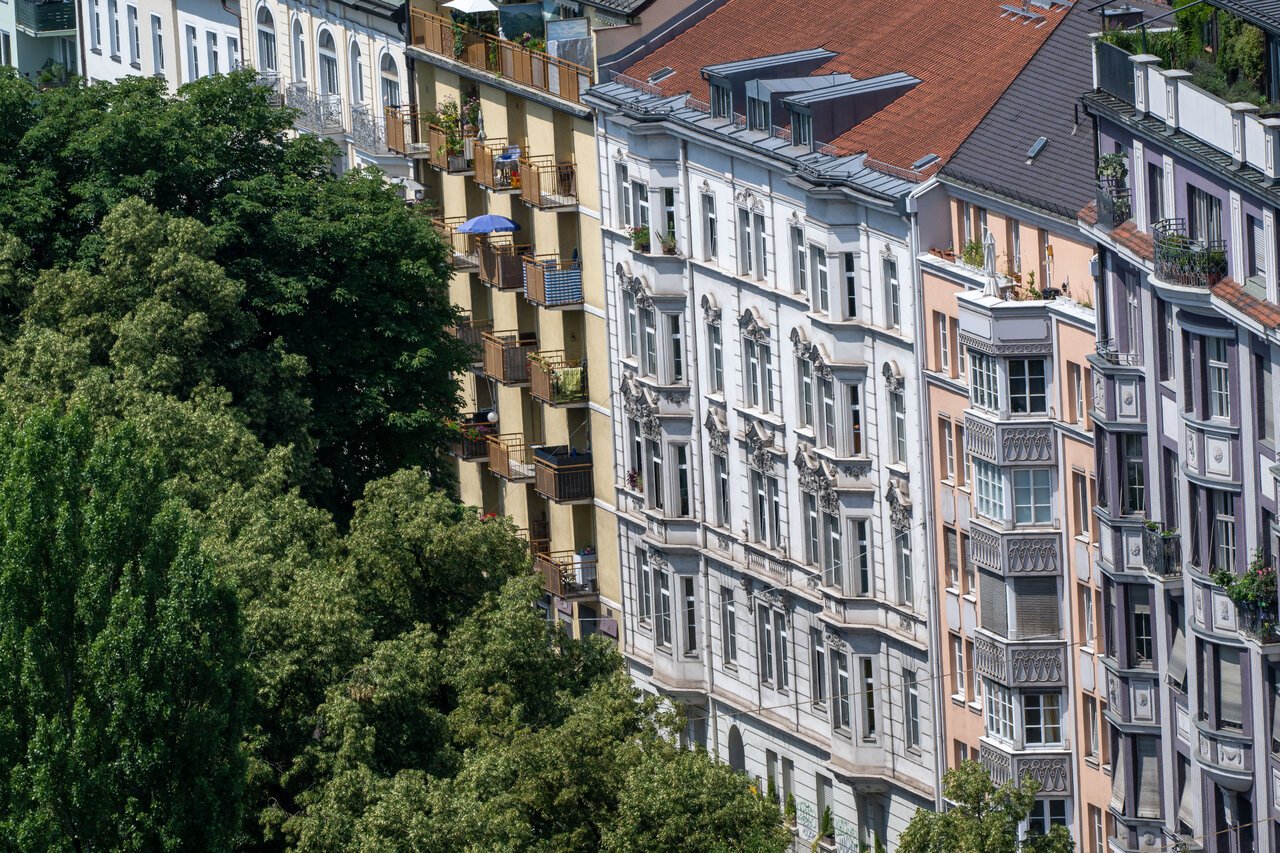Most of us have daydreamed about living in our very own stunning home in a fantastic location. But just how likely is it for the average person to achieve this? One thing is for certain - you have to earn a fair bit of money to buy a home in Germany. Recent studies give an idea of how high your salary would need to be to secure a million euro property.
READ ALSO: Is it a good time to buy a home in Germany? How much money do you need for a €1 million home? For 100 square meters - preferably with your own garden - you have to dig deep into your pockets in Germany. The most expensive properties are in the south, mainly in Munich as well in the far north in the district of Nordfriesland. A house or apartment of this size costs around €1 million in these places.

For example, a luxury ground floor four-room, 105 square metres apartment with a garden in Munich's Obermenzing suburb costs just under €1.3 million in August 2024. Very few people have that kind of money sitting in their bank.
But even getting a mortgage would be unaffordable for most people. And remember - this is Germany. There are plenty of hidden costs you have to consider when buying a home.
In addition to the actual purchase price of around a million euros, there's the property transfer tax, which is between 3.5 and 6.5 percent of the purchase price depending on the federal state.
READ ALSO: The fees you have to pay when buying a home in Germany Furthermore, there is a broker's commission of at least 3.57 percent and the costs for the notary and land registry entry. As a rule, you can add 12.
5 percent to the purchase price. For a property worth a million, that would be a whopping €125,000. According to data compiled earlier this year by the service provider Dr.
Klein, the typical German home buyer currently finances a home of this price with equity of around 13.6 percent. That would be around €153,000, which you would already need to have saved up.
The remaining sum is covered by a property loan. According to an analysis by the financier Interhyp, the interest rate for a fixed interest loan of 15 years is around an average of 3.54 percent.
Added to this is the initial repayment of around 1.82 percent on average. Together, this results in a monthly loan instalment of about €4,340 for the €1 million home.
That's roughly how much gross pay most Germans earn per month. But you'd want to spend your salary on more than just loan instalments. That's why financial experts recommend limiting the monthly instalment to a maximum of 30 percent of your monthly net income.
If €4,340 were 30 percent of your net income, you would have to earn €13,033 net (after tax) every month. What that would mean for your gross income varies hugely depending on your life situation - for example, which tax bracket you are in, whether you have children, whether you're married or are helping care for your parents, etc. For instance, as a single person without children and with a church membership in North Rhine-Westphalia, you would have to earn around €23,500 gross per month to reach this net amount.
This probably won't surprise you, but according to the Cologne Institute for Economic Research (IW Köln), not even one percent of Germans manage this. Even if you team up with your partner to buy a property together, you would both have to be in the top one per cent of German incomes. READ ALSO: How much do you have to make to be considered rich in Germany? Is it impossible to buy my dream home? If you do want to buy a home like this, you may have to scale down slightly.
One option would be to avoid the most expensive areas of Germany. While Munich and the posh island of Sylt are unaffordable for most, the average price for 100 square metres in the big cities like Berlin, Hamburg, Frankfurt, Stuttgart, Cologne and Düsseldorf is €675,000, according to the Postbank Wohnatlas 2024. This could be paid for with a monthly income of around €15,000 gross.
As a couple, you can achieve this if you both belong to the top six per cent of earners in the country. In other major cities in the country, the average price for 100 square metres including ancillary costs falls to around €350,000. To finance this, you need a monthly net income of about €4,562.
You can achieve this as a single person in the top five percent of German incomes and as a couple on an average income. Buying a house is even cheaper in medium-sized towns or in rural districts. Here, the average, including extra costs, is €317,000 for 100 square metres.
A monthly net income of about €4,132 is sufficient for this. This is still a lot for a single earner, but for a couple with two incomes it is absolutely affordable. The alternative would be to downsize your dreams.
If you try and opt for 80 square metres, you'd save around €135,000 in the priciest cities, €70,000 in all other large cities and around €63,000 in medium-sized cities and rural districts - with a corresponding reduction in the income required for getting a mortgage, of course. READ ALSO: What you need to know about buying property in Germany The third option is to exceed the typical financing conditions - i.e.
either contribute significantly more equity than 13.6 percent (for instance if you received a large inheritance or money from selling a previous property) or spend more than 30 percent of your net income on the loan. In these cases, however, you may have to make significant cutbacks in other areas of your life.
Why is property is so expensive? The fact that property is so unaffordable for so many people is due to two phenomena. While interest rates from the European Central Bank (ECB) and therefore average property interest rates were low during the 2010s, property prices skyrocketed. From 2016 to 2022 alone, prices rose by an average of more than 10 percent per year.
The fact that too few new flats have been built in Germany for years also plays a role. The low supply is driving up prices. Although purchase prices fell by around 10 percent on average last year during an economic slump, the level remains very high.
On average, prices in Germany have risen by 66 percent since 2016..



















